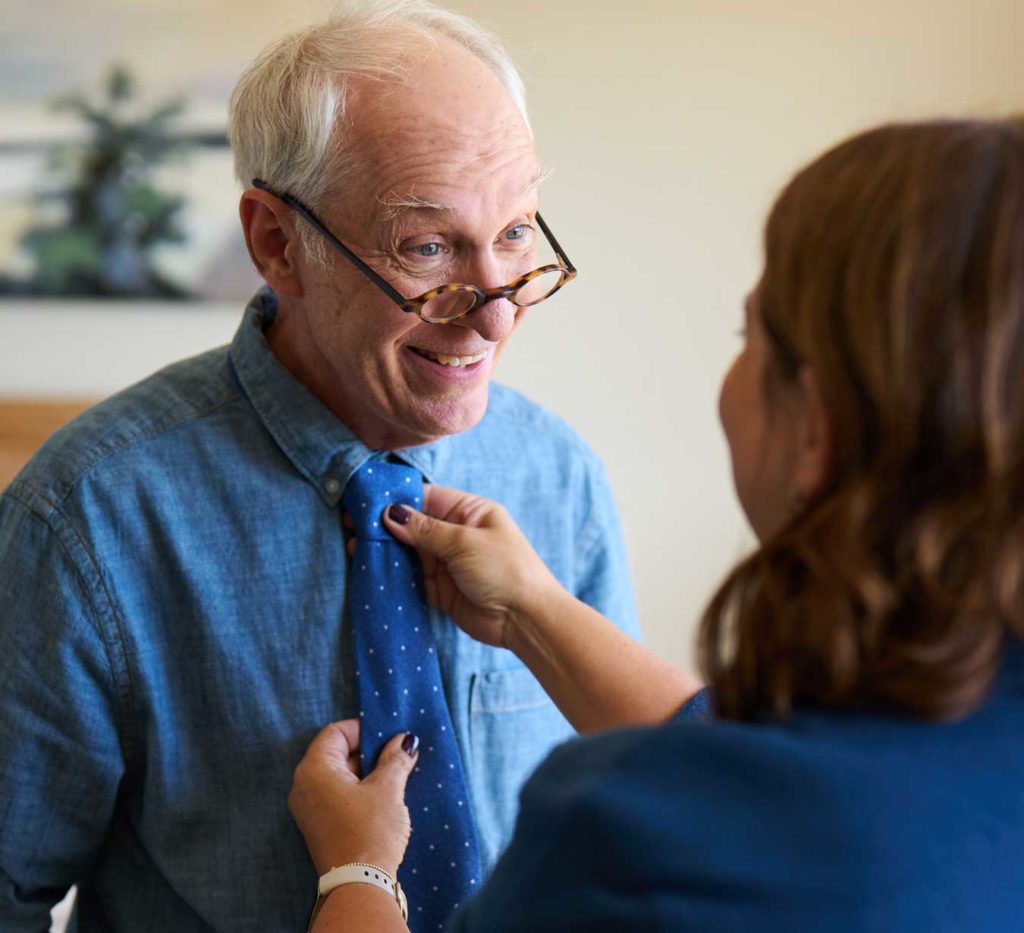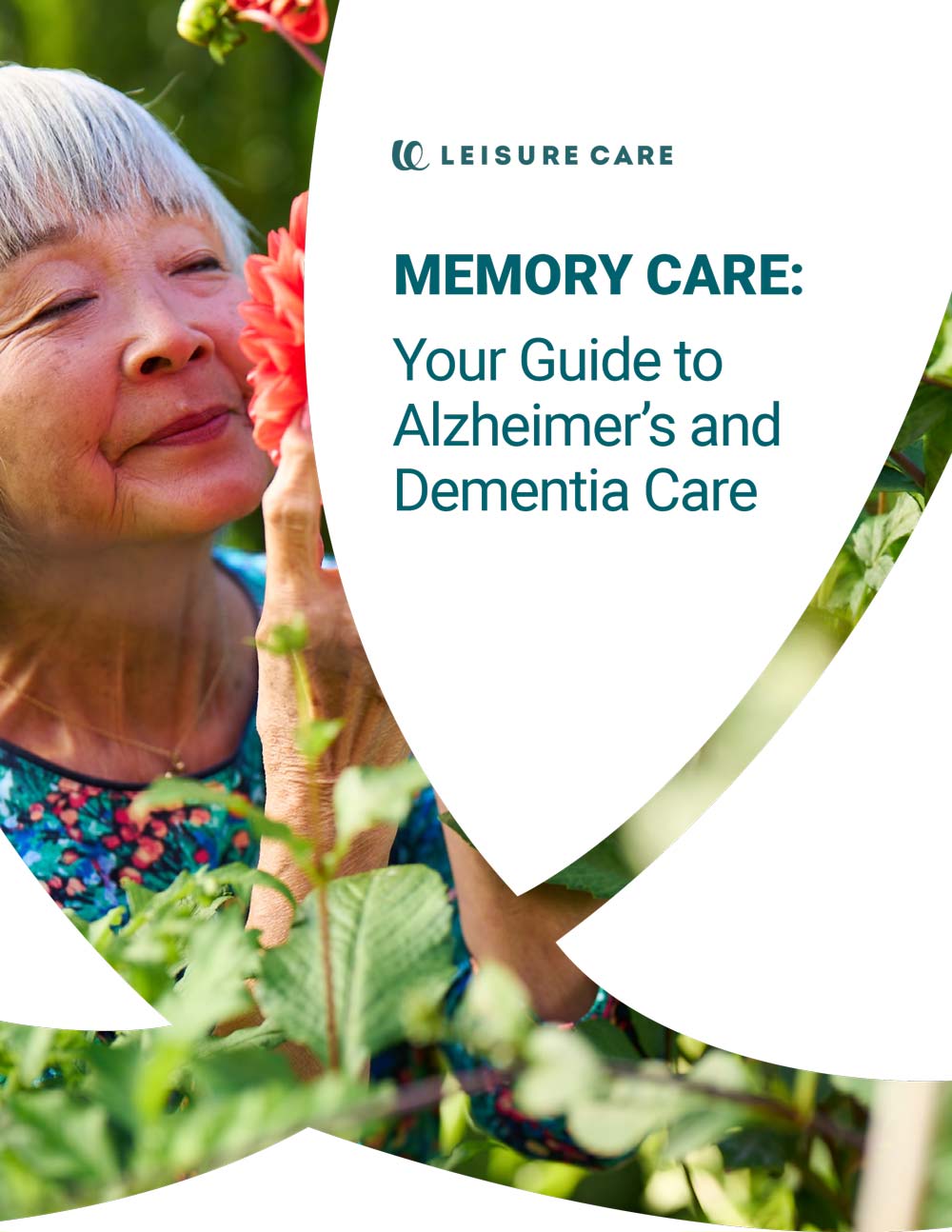Although memory care residents share a common diagnosis, we understand that each family’s journey is unique, and each resident is an individual to be seen, heard, and celebrated. We strive to meet the physical, social, mental, emotional, and communal needs of our residents in every interaction, ultimately providing well-rounded care that encourages and inspires.Our caregivers possess both the experience in caring for people with memory loss and the right personality to brighten a day. Our team receives extensive and ongoing training for a range of dementia behaviors, ensuring that they’ll take a proactive approach to care and be the best in every moment. The bottom line? They love what they do, and they do it well.
Memory care costs are in addition to monthly fees and care plans are regularly reviewed.








